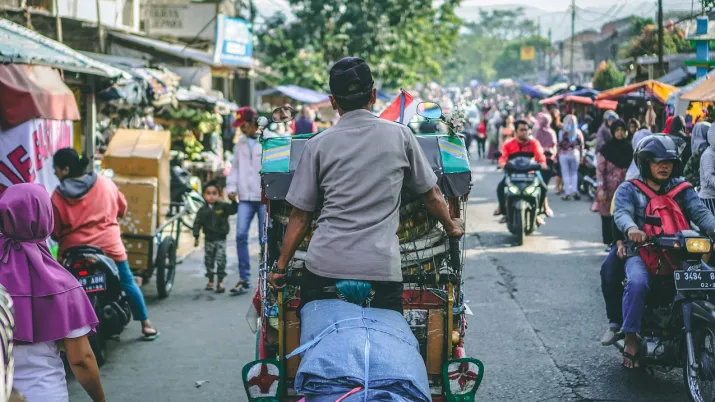Share the page
Inequality Diagnostic Report for Indonesia

-
Project start date
-
2022Status
Completed
-
Project end date
-
2023
-
Country and region
-
Research program
How to effectively reduce inequality in Indonesia? To answer this question, the Extension of the EU-AFD Research Facility on Inequalities is working with the local research center LPEM and the national statistical office BPS to produce a diagnosis that is essential to guide policy interventions towards reducing inequalities.
Context
In Indonesia, poverty has been declined since 2006 from 17.75% to 9.41% in 2019 due to strong economic growth and other poverty reduction efforts. The inequality, however, remains considerably high. Since 2010, Indonesia’s Gini ratio remains above 0.38. The poverty and inequality situation has been worsen post-pandemic. Indonesia’s headcount poverty rate back to double digit, 10.14% in 2021, while the Gini ratio climbed to 0.384, its highest rate since 2018. While focus on economic inequality is important, the picture of inequality in Indonesia should be assessed through a multi-dimensional aspect, not limited to households income or expenditure.
Indonesia is a fourth most-populous and also the largest archipelagic country in the world. It makes any policy context should be assessed carefully throughout population groups, income class, and geographical location due to the difference in the provision of public infrastructure and policy efforts within the country. As such, a comprehensive inequality diagnostic report is needed to assess overall condition of inequality in Indonesia not only using monetary indicator (income or expenditure), but also social assets, in terms of access to education, health, water and sanitation, employment, and other basic infrastructures needed for households.
The Extension of the Research Facility on Inequalities will cooperate with leading research center, LPEM FEB UI, and national statistical office, BPS, to conduct comprehensive inequality assessment and produce an inequality diagnostic report as the basis for launching a national dialogue about inequality and stimulate policy interventions to overcome inequality.
This project is part of the Extension of the EU-AFD Research Facility on Inequalities . Coordinated by AFD and financed by the European Commission, the Extension of the Facility will contribute to the development of public policies aimed at reducing inequalities in four countries: South Africa, Mexico, Colombia and Indonesia over the period 2021-2025.
Objectives
The objectives of the Inequality Diagnostic Research in Indonesia are:
- to produce a working paper which will consolidate data and resources (papers) around inequality issues to profile the prevailing situation of inequality in Indonesia.
- to conduct capacity building activities for national research center and the national statistical office in performing data analysis for the Inequality Diagnostic Research Report.
- to introduce specific tools for multidimensional inequalities diagnostic in Indonesia.
This research has led to a comprehensive Inequality Diagnostic Research Report in Indonesia and contributes to public debate and discussion on Inequality in Indonesia. Indeed, this project performed a thorough analysis of multi-dimensional aspect of inequality in Indonesia and a comprehensive breakdown based on income groups, geographical locations, and gender. It also includes analysis of prior policies that have been taken by the government to reduce inequality and how it performs overtime. The output of this research will help government to identify priorities and policy options in order to further reduce them.
Research findings
You will find below the research publications related to this project:
Read the press release
Contacts
-
Oskar LECUYER
Research Officer, Environmental Economist

Other research projects supported by the Extension in Indonesia
Harnessing the benefits of inequalities reduction in marine protected areas in Indonesia
Completed
2022 - 2023


